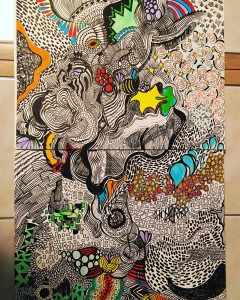- Get in touch
- 0161 866 8573
- hello@robertsonfox.com
Mindfulness or Mindlessness? They are two Sides of the Same Coin!
Warning: Trying to access array offset on value of type bool in /data/7/0/70165302-beb4-4487-8167-b98838e03479/robertsonfox.com/web/wp-content/themes/betheme/functions/theme-functions.php on line 1230
Warning: Trying to access array offset on value of type bool in /data/7/0/70165302-beb4-4487-8167-b98838e03479/robertsonfox.com/web/wp-content/themes/betheme/functions/theme-functions.php on line 1235
Clear About the Company Culture? As MD You’re Under the Microscope!
March 18, 2016Simple Advice for Getting Ahead
April 1, 2016Mindfulness or Mindlessness? They are two Sides of the Same Coin!
Warning: Trying to access array offset on value of type bool in /data/7/0/70165302-beb4-4487-8167-b98838e03479/robertsonfox.com/web/wp-content/themes/betheme/functions/theme-functions.php on line 1230
Warning: Trying to access array offset on value of type bool in /data/7/0/70165302-beb4-4487-8167-b98838e03479/robertsonfox.com/web/wp-content/themes/betheme/functions/theme-functions.php on line 1235
 Does anyone remember Doodle Art?
Does anyone remember Doodle Art?
I had a fabulous one with a Greek Mythology theme when I was growing up. It was huge and took up half my bedroom wall. I used to love colouring in the different mythological creatures – often when I should have been revising – and discovering hidden patterns and objects within the drawing that had been put there for me to find.
I left my partially created masterpiece on the wall when I went to university; and whilst I was away it faded in the sunlight. Even though I was disappointed to throw it out; colouring over the drawing wouldn’t have been the same.
Doodling wasn’t something I saw as therapeutic or a conscious distraction at the time. Looking back though; that’s exactly what it was. It countered the weight of expectation to do well at school, which created anxiety in me from an early age.
A friend recently re-introduced me to ‘adult art’ and I was surprised to see a plethora of adult colouring-in books to choose from.
When I engage in this activity now I think of it as an act of ‘mindlessness’; given that my head is completely empty of conscious thought, whilst I’m colouring a seahorse pink and purple. I’m not thinking about how I feel in that moment; or about the vivid colours or the intricacy of the drawings. I am simply doodling and it allows me to switch off entirely. For 10 minutes towards the end of a hectic day, this is like therapy for me.
Mindlessness is perhaps easier to do than mindfulness; which is the flipside to this coin.
Mindfulness is a way of teaching ourselves to live more in the moment that we are in; to be present with whatever it is that we are experiencing.
Developing our ability to listen attentively to what others are saying is a worthwhile skill; even necessary depending upon your line of work. Learning to be fully present with clients, without any agenda of your own, is a competence looked for when we’re being assessed for our coaching mastery.
Mindfulness is a conscious act, routed in the present moment. We are choosing what we pay attention to as opposed to not thinking about anything at all; which is what happens when I have a felt tip pen in my hand.
The technical differences are not as relevant as recognising the choice we are making. It’s important that you do whatever works for you; and as a Coach that I do what works for my clients.
We tend to think of distractions as a bad thing; since they take our attention away from work or something else we feel we should be doing. And yet deliberate distractions are healthy; even necessary for our own sanity sometimes.
So, the next time you find your mind wandering, take a conscious ‘time out’ and decide whether to do something mindful or mindless; as you prefer.
